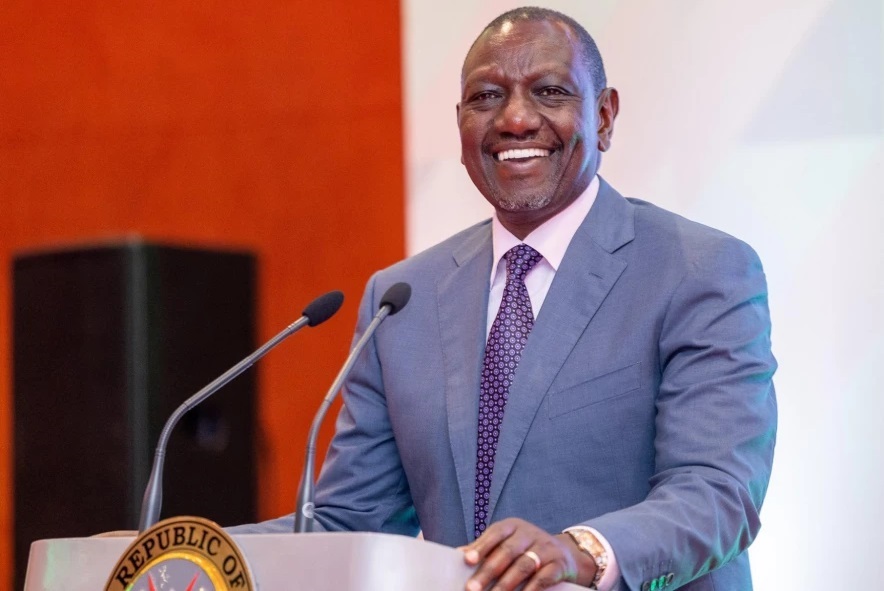
Kenya is set to gain duty-free access to the Chinese market for key agricultural exports, including avocados, tea and coffee, following the conclusion of high-level bilateral trade talks between Nairobi and Beijing. President William Ruto announced the breakthrough during a presidential private sector roundtable in Nairobi, saying the deal is expected to take effect “in a few months” once the remaining legal instruments are finalized.
“We have concluded the high-level conversation with China. They have agreed to a reciprocal arrangement to remove all the tariffs on our tea, coffee, avocado and other agricultural exports,” Ruto said. “It is in the best interest of Kenya that we get into this market.”
The agreement follows negotiations initiated during Ruto’s state visit to Beijing in April. It is part of Kenya’s broader strategy to diversify export markets and reduce vulnerability to shifting global trade policies. China, with its 1.4 billion consumers, presents an enormous commercial opportunity. Trade and Industry Cabinet Secretary Lee Kinyanjui noted that even capturing just 1% of that market could be transformative for Kenyan producers.
Currently, Kenyan exports to China face tariffs of about 10%, a cost not imposed on similar products from neighbouring countries such as Rwanda, due to their different trade status. The removal of these duties will eliminate a competitive disadvantage and allow exporters to sell directly to China without routing products through third countries to avoid tariffs.
Offsetting U.S. Tariff Pressures
The timing of the China deal is significant. On August 3, the United States imposed a 10% tariff on several Kenyan exports, removing benefits previously enjoyed under the African Growth and Opportunity Act (AGOA). AGOA, which has provided duty-free access to the U.S. since 2000, is set to expire this September, and Nairobi is seeking to negotiate an extension or replacement arrangement.
Kenya exported goods worth $737.3 million (about Ksh.95.3 billion) to the U.S. in 2024, according to the U.S. Trade Representative’s office. The new tariffs threaten this trade, making access to alternative markets more urgent.
“We have to negotiate our way into different markets,” Ruto said, pointing to Kenya’s Economic Partnership Agreement with the European Union (effective mid-2024) and the Comprehensive Economic Partnership Agreement signed with the United Arab Emirates in January 2025. Talks are also underway with India, Turkey, and Canada, though no breakthrough has yet been achieved with India.
Balancing Geopolitical Pressures
Kenya’s growing economic ties with China have stirred unease among some of its traditional allies, particularly the United States. Ruto acknowledged the diplomatic tensions, noting that “some of our friends are complaining that we are doing too much trade with China,” but insisted that his government will act in Kenya’s best interest.
U.S. Senator James Risch has proposed reviewing Kenya’s designation as a major non-NATO ally, citing concerns over its alignment with countries such as China, Russia, and Iran. However, Ruto maintained that the decision to expand trade with China is purely economic.
“I was sent by the private sector to go and negotiate these markets,” he said, describing a candid discussion with Chinese President Xi Jinping that helped secure the tariff-free deal.
With China already supplying over Ksh.600 billion worth of goods to Kenya annually, the new agreement could help narrow the trade imbalance while giving Kenyan exporters a stronger foothold in one of the world’s largest consumer markets.
Kenya Private Sector Alliance Vice Chairman Jas Bedi noted that the global trading environment has shifted toward increased protectionism and transactional agreements. In this new order, he said, Kenya must act decisively to secure its economic interests.
If successfully implemented, the China deal could not only boost Kenya’s agricultural exports but also offer a buffer against the growing unpredictability of traditional trade relationships.
